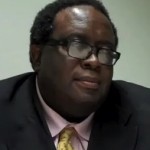By David Rowe
Op-Ed Contributor
Shortly after the election of the People’s National Party Government in Jamaica, I reminded in this Journal that Jamaica needed to drastically improve its murder rate and corruption index; without doing so, it was unlikely that there would be an early accord between the government and the fund.
It is now eight months into the new administration, and no IMF arrangement has been finalized. The blame for this cannot be placed at the feet of Peter Phillips, Jamaica’s sophisticated Minister of Finance, as he has reportedly persuasively argued Jamaica’s needs and financial requirements to the Fund.
The IMF is, of course, deeply concerned about the current state of Jamaica’s debt and, with the example of Belize defaulting on some of its international bond payments, IMF officials are justified in their concerns. Jamaica, which is among the most indebted countries in the world, has not demonstrated the economic growth which its politicians and economists have predicted.
Transparency International’s ratings of Jamaica continue to decline. Many Jamaican-Americans and Jamaican-Canadians who wish to invest in the Country find themselves challenged by reports of violent crime and obstructive red tape facing potential diaspora returnees.
It appears that any IMF package must include a slimmer public sector with the resultant layoffs of government employees. It is unlikely that the fund will be comfortable with the JEEP programme, one designed by the current government to achieve social equity in the rural peasantry and the urban working class. Poverty is still Jamaica’s greatest social problem. The PNP was clearly elected on an anti- poverty, anti-corruption mandate which seems dependent upon the finalization of an early IMF deal
Multiple murders continue to violate Jamaica’s tropical equilibrium. In the few weeks, Jamaicans learned of the murder of a prominent lawyer, and then the murder of a significant race horse trainer . The IMF indicated earlier this year that Jamaican authorities had effectively wasted the opportunity that the previous Jamaica Debt Exchange afforded them and regretted that “ it had not been accompanied by fiscal consolidation.”
Some blame the new PNP Government for thus far falling short of kick-starting the economy. The new government is now faced with the hard alternative of paying down its debt to domestic and foreign creditors or addressing the critical material needs of the Jamaican people.
The IMF’s Executive Directors clearly seem to believe that paying the debtors first and keeping the people waiting is the right approach. Jamaica’s recent expenditures in London during the Olympics may not have been “the financial consolidation” that the IMF Executive Directors had in mind. Who will explain the impending national choices to the Jamaican people?
David P Rowe is an attorney in Jamaica and Florida and a law professor at the University of Miami School of Law in Coral Gables, Fla.
Note: the opinions expressed in Caribbean Journal Op-Eds are those of the author and do not necessarily reflect the views of the Caribbean Journal.

